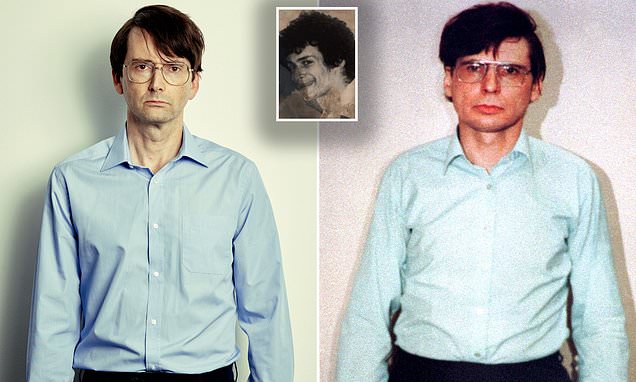This week, ITV’s ‘Des’ has enthralled the nation. With former Doctor Who Lead David Tennant in the title role, the three-part drama depicts the aftermath of the arrest of serial killer Dennis Nilsen. In the programme, the exploitation by the media of Nilsen’s victims and even of Nilsen himself are pondered. Aptly, this blog capitalises on the public interest in the programme to provide a brief overview of some of the real-life legal issues raised, written with a non-legal audience in mind.
Murder, manslaughter and diminished responsibility
“When life itself seems lunatic, who knows where madness lies?… Too much sanity may be madness, and maddest of all is to see life as it is and not as it should be.”
In the dramatization, Nilsen (Tennant) borrows these words from Don Quixote, Miguel de Cervantes epic. Nilsen is depicted as thinking himself possibly mad. To mirror the law, ‘Des’ presents a binary interpretation of Nilsen’s psyche. Either, he is mad, or he is a calculated manipulator. In the third episode, Nilsen is shown to plead not guilty to six counts of murder and two charges of attempted murder. He argues that instead he only committed (voluntary) manslaughter due to a mental defect creating diminished responsibility.
Essentially, diminished responsibility is a partial defence to murder where defendants admit to the actus reus (“guilty act”) but deny the mens rea (“guilty mind”) of murder. Instead, they are charged with the lesser offence of (voluntary) manslaughter due to a mental defect.
“He’ll be out again in 15 years”
When speaking to Brian Masters, Nilsen’s biographer, DCI Peter Jay says this – attempting to persuade Matters to give evidence which will secure a murder conviction. This aptly summarises the impact of a successful conviction for voluntary manslaughter by diminished responsibility. Indeed, s37 of the Mental Health Act 1983 allows Judges to impose a hospital order, giving treatment rather than punishment. Jay’s (albeit fictional) assessment is accurate. Today, the median sentence for voluntary manslaughter is just four years.[1]
Thankfully, the diminished responsibly defence failed; the Crown won the day. Nilsen was found guilty for six counts of murder and one count of attempted murder. Judge Croom-Johnson imposed a life sentence, with a recommendation of a minimum of 25 years imprisonment.[2] Nilsen died in prison in 2018 aged 72 in York hospital – just a ten-minute walk from my student accommodation on a personal and slightly chilling note.
As ‘Des’ highlights, Nilsen was never charged for the murder Graham Allen or attempted murder of Carl Stottor. As well as this, despite later discovered DNA evidence, Nilsen was also never charged with the murder of Stephen Holmes – his first and youngest victim, just 14 years old.[3] This week, the Lord Chancellor’s speech announced a White Paper whereby child killers will receive Whole Life Orders[4] – meaning they never leave prison. Nilsen’s own sentence was also later upgraded to a whole life tariff.[5]
The Crown Prosecution Service
In 1984, the Police and Criminal Evidence Act 1984 (PACE) was passed to address the public’s loss of faith in the criminal justice system[6] – which ‘Des’ alludes to. Taking place in 1983, ‘Des’ shows DCI Peter Jay’s efforts to prove pivotal in securing Nilsen’s conviction – principally, the recount given by attempted murder victim, Carl Stotter.
That same year, a White Paper which became the Prosecution of Offences Act 1985, established the Crown Prosecution Service (CPS) – with operations commencing in 1986. This was done with the view that since PACE has increased police powers; counterbalance was required for prosecutions.[7]
“There was no CPS responsible for getting witnesses to court” [8]
Chris Healey, a Detective Sergeant on the investigation, recounts having to pay for Stotter’s taxi to the Old Bailey. Thankfully, the CPS has helped to streamline the conviction process since then.
“It’s always about money”
That said, in ‘Des’ the Police higher-ups are depicted as frugal; preferring to save money than pursue valuable albeit expensive leads – with the view that Nilsen would likely face life in prison regardless. Similarly, ending September 2018 only 8.2% of five-million recorded crimes were prosecuted – largely due to government cuts.[9]
References
[1] https://consult.justice.gov.uk/sentencing-council/manslaughter-guideline-consultation/user_uploads/section-one-1.pdf
[2] https://www.telegraph.co.uk/news/obituaries/1375716/Sir-David-Croom-Johnson.html
[3] https://www.dailymail.co.uk/news/article-420905/Serial-killer-Nilssen-prosecuted-schoolboy-murder.html
[4] https://www.gov.uk/government/speeches/lord-chancellors-speech-white-paper-launch-a-smarter-approach-to-sentencing
[5] https://www.hertfordshiremercury.co.uk/news/hertfordshire-news/des-itv-dennis-nilsen-killer-4513766
[6] https://www.lawteacher.net/acts/police-and-criminal-evidence-act.php#:~:text=The%20Police%20and%20Criminal%20Evidence,the%20English%20criminal%20justice%20system.&text=All%20three%20cases%20were%20subsequently,with%20all%20convictions%20being%20quashed.
[7] https://www.politics.co.uk/reference/crown-prosecution-service#:~:text=The%20CPS%20was%20established%20in,having%20an%20independent%20prosecution%20service.
[8] https://www.mylondon.news/news/north-london-news/des-itv-police-officers-who-18939936
[9] https://www.independent.co.uk/news/uk/crime/crime-statistics-uk-justice-prosecution-rates-rape-victims-disclosure-police-funding-a8747191.html
